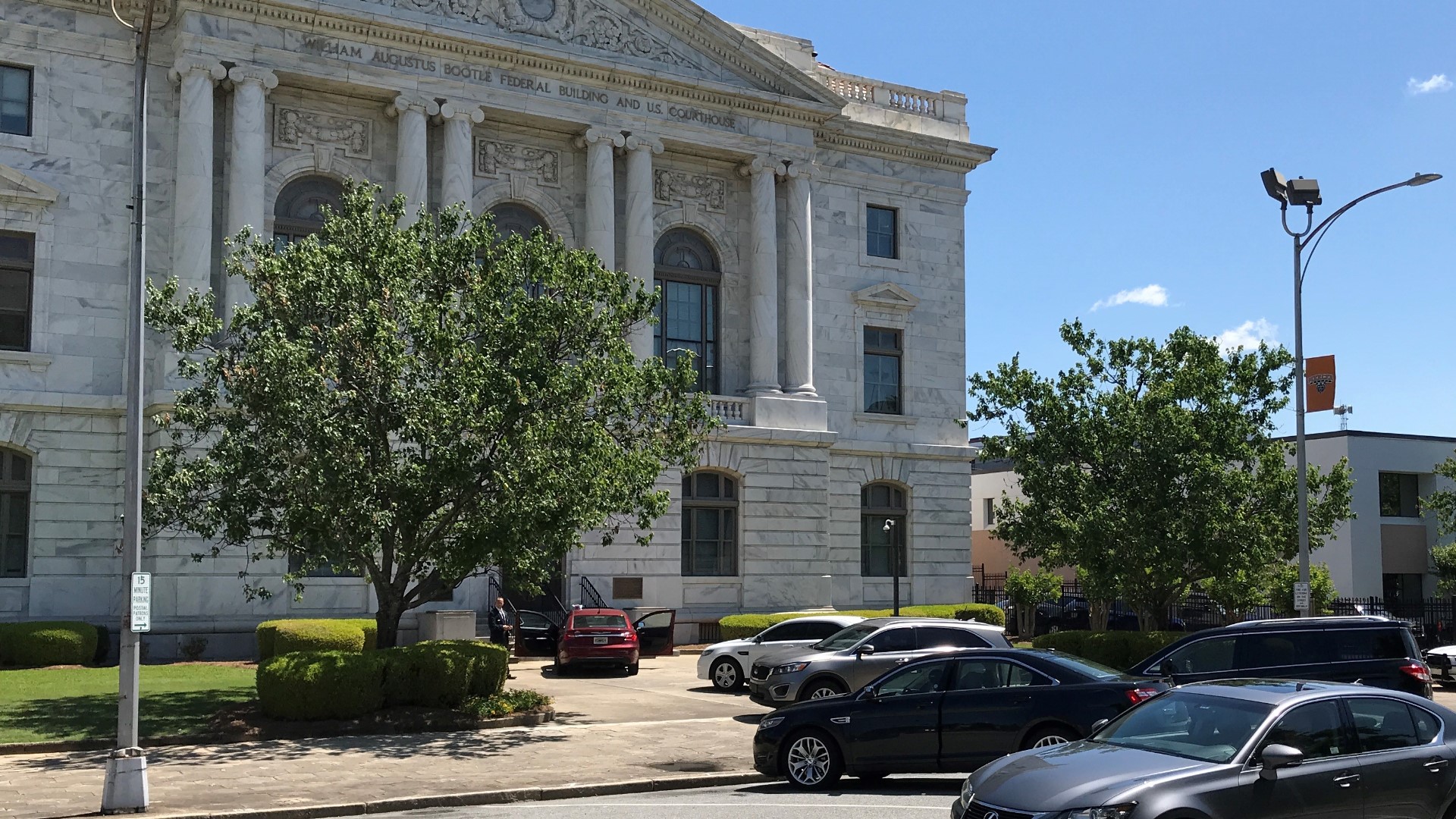MACON, Ga. — Diego Ibarra – whose brother is charged in 22-year-old nursing student Laken Riley's killing on UGA's campus – appeared in downtown Macon's Augustus Bootle Federal Building Monday afternoon.
In a second-story courtroom before U.S. Magistrate Judge Charles Weigle, Ibarra was accused by federal prosecutors of possessing a fake Green Card and presenting it to authorities.
"That is the charge in the complaint – you are presumed to be innocent of this charge at this time," Weigle said. "The government has the burden of proof and must prove those charges beyond a reasonable doubt."
The hearing started just like most first appearances. However, Ibarra's public defender and federal prosecutors delayed discussion on establishing probable cause or Ibarra's possible release from jail until a Thursday morning hearing.
According to the U.S. Attorney's Office, an Athens-Clarke County Police officer stopped Ibarra because he matched the description of his brother, Jose Ibarra, who was a suspect in Riley's killing.
The day before, Riley’s body was found near the intramural fields at UGA after her friend became worried that Riley had not returned from a run, and she called the police, according to the UGA Police Department.
The same day that Jose was arrested in Riley's killing, Ibarra was also arrested on his own charges: possessing a fake federal document.
Ibarra – wearing a jail-issued orange jumpsuit reading "BUTTS COUNTY INMATE" on the back while shackled at the waist and at his legs – entered the courtroom at around 2:25 p.m., seemingly overwhelmed by the whole situation.
He sat at the front of the courtroom at a big wooden table. Behind him were the federal prosecutors charging him with a crime.
When he sat down, Ibarra looked down at the table and then glanced around the courtroom before looking back down at the table. Before the hearing started, an interpreter – later sworn in by Weigle – helped walk Ibarra through the case.
The hearing started a few minutes later with Weigle notifying Ibarra of his right to remain silent, right to an attorney, the right to a jury trial and Ibarra's right to notify the Venezuelan consulate that he was arrested and charged with a crime.
Federal prosecutors also explained the charges against him – possession of a fraudulent document – and said that Ibarra faced up to 10 years in prison and a $250,000 fine.
After asking a question of the attorneys or making a statement, they paused so the interpreter could translate the proceedings in Spanish.
However, the core meat and potatoes of the hearing were cut short.
Prosecutors for the U.S. Attorney's Office for the Middle District of Georgia asked for a three-day continuance, essentially pushing back the discussion of the core case against Ibarra to Thursday at 10 a.m.
Because Ibarra was charged by criminal complaint and not a grand jury, prosecutors are required under the 5th Amendment to demonstrate to the judge there is enough evidence Ibarra likely committed the crime he is charged with. That legal standard is known as probable cause.
At the delayed preliminary hearing, the attorneys for the government and the federal public defender representing Ibarra will have to hash out whether or not Ibarra is eligible for pre-trial release or whether he will remain in custody while his case goes through the court.
On Sunday, federal prosecutors filed documents calling for Ibarra's detention.
In the back of the courtroom, U.S. Attorney for the Middle District of Georgia Peter Leary sat in on the hearing and observed the proceedings. When approached by 13WMAZ, Leary said that his office "has no comment at this time."
The death of Riley has prompted blowback from Republican legislators in Georgia and nationally after it was revealed that her suspected killer, Jose Ibarra, had entered the U.S. illegally.
Unlike his brother, Ibarra is not charged with a violent crime.
Both Jose and Diego Ibarra had previous run-ins with the law and immigration authorities, but in Diego's case, Diego had previously expressed to authorities "a credible fear" to his life if he were to return to Venezuela.
Because of that, Diego had been released in New York City by ICE as his case made its way through the immigration courts.
In Athens, Diego had been arrested three times. Once, he was arrested for a DUI and driving without a license, another time he was arrested for shoplifting and in December he was arrested for failing to appear in court.
After Riley's death, a bill making its way through the Georgia legislature would stiffen penalties against law enforcement agencies that don't send inmates' fingerprints to ICE when they get booked into jail. That bill passed the state House and now will be considered by the state Senate.

